The end of Communism in Eastern Europe
1/14
Earn XP
Description and Tags
Name | Mastery | Learn | Test | Matching | Spaced | Call with Kai |
|---|
No analytics yet
Send a link to your students to track their progress
15 Terms
What was the Brezhnev Doctrine?
A soviet foreign policy that proclaimed in 1968 that the Soviet Union had the right to intervene in the affairs of other socialist countries to prevent any threat to communist rule.
Give an example of the Brezhnev doctrine in action
There was Soviet intervention in Czechoslovakia in 1968 to prevent the Czech communist government introducing liberal reforms in response to popular protests led by students. The USSR sent in the Red army.
This event led to the formation of the Doctrine.
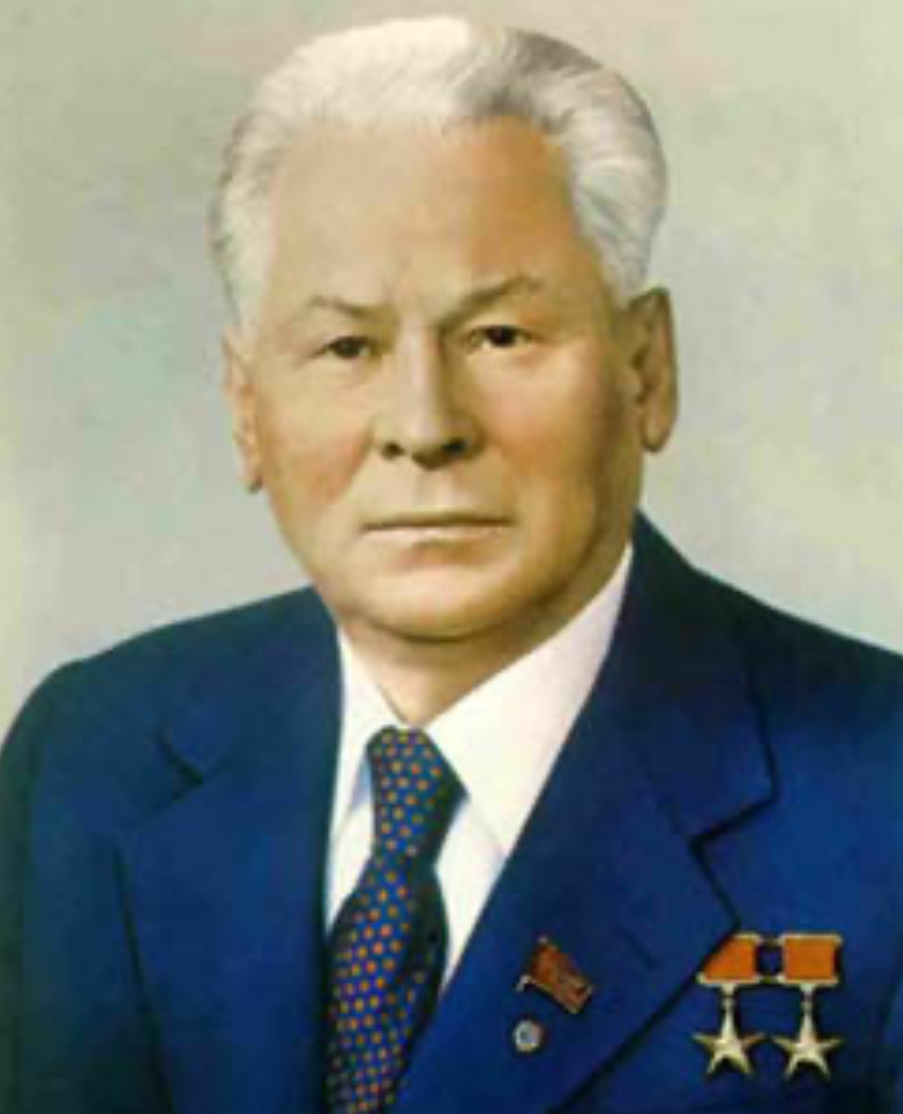
When and where did Gorbachev end the Brezhnev Doctrine?
At the funeral of the Soviet leader, Konstantin Chernenko, in March 1985.
Gorbachev had the opportunity to meet every leader if the communist regimes of Eastern Europe and each was in turn informed by Gorbachev that he would not intervene in their internal affairs. They were free to choose their own path to socialism.
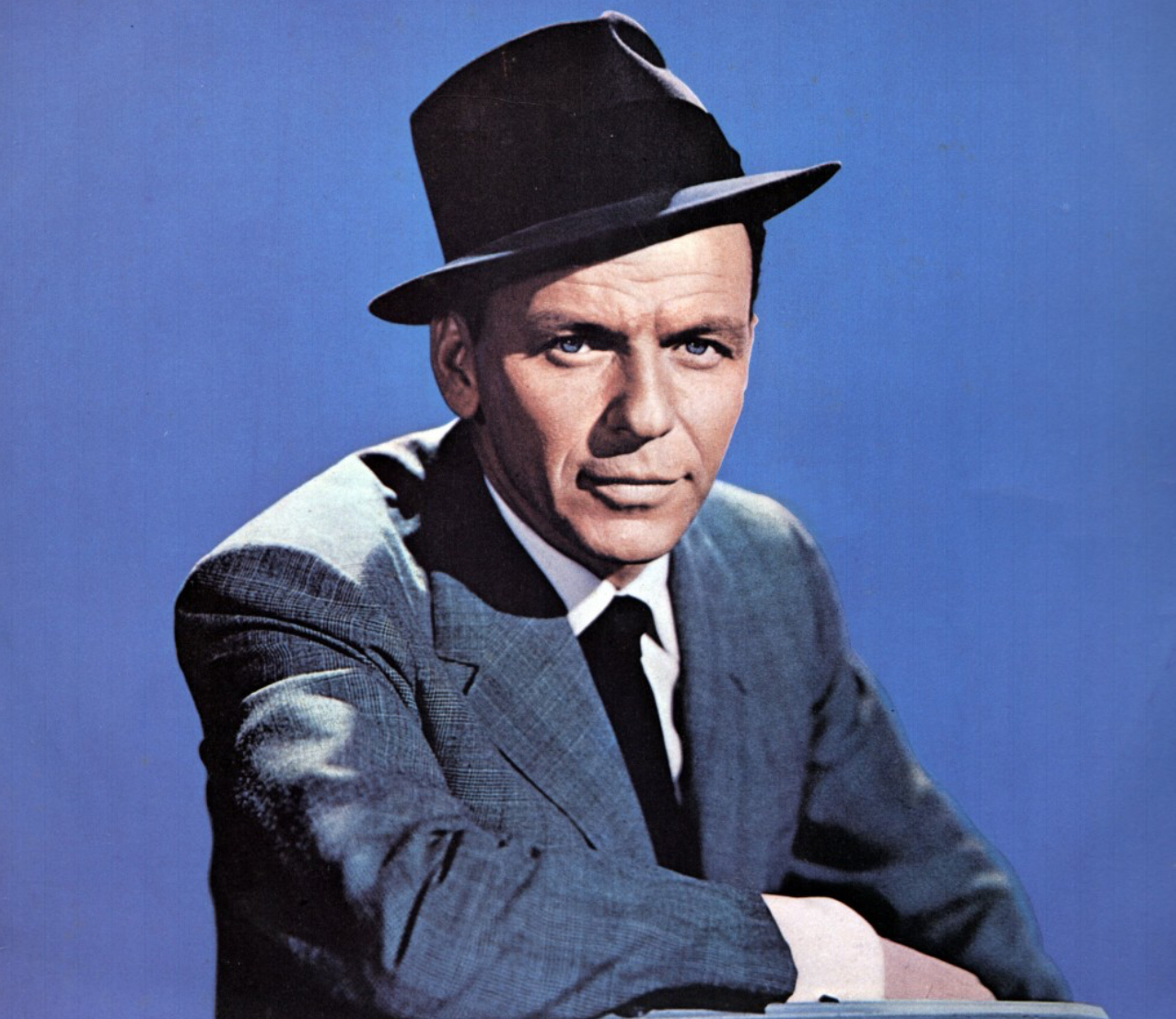
What was the name of the new doctrine by Gorbachev that allowed Eastern European states to determine their own internal affairs?
The Sinatra Doctrine→ Gorbachev was allowing them to go their OWN WAY
What were Gorbachev’s reasons for ending the Brezhnev Doctrine?
Supporting satellite states was expensive (the USSR spent approximately $40 billion annually propping up communist governments around the world) Gorbachev wanted this money to be used to promote domestic reform.
Gorbachev refused to use force to keep the population under control as he believed that armed intervention was morally wrong. Gorbachev was naive and idealistic and chose to genuinely believe that people would willingly chose communism.
How did the Communist regime collapse in Hungary?
The pressure came from with in the Communist Party itself. Janos Kadar was a hardliner who had run Hungary since the failed Hungarian Rising of 1956 but he was sacked in 1988.
The government, now dominated by reformers, decided to allow other political parties to content elections.
Why was the ending of the Brezhnev Doctrine particularly bad for the East German regime?
It was an artificial country that was more reliant on Soviet support than other regimes of the region.
What impact did Gorbachev’s visit to East Berlin in October 1989 have?
It encouraged those who wished to push for reforms. There were mass demonstrations on the streets of East German cities and the pressure for reforms became unstoppable.
Egon Krenz the East German leader refused to sanction widespread repression and decided to open access across the Berlin Wall.
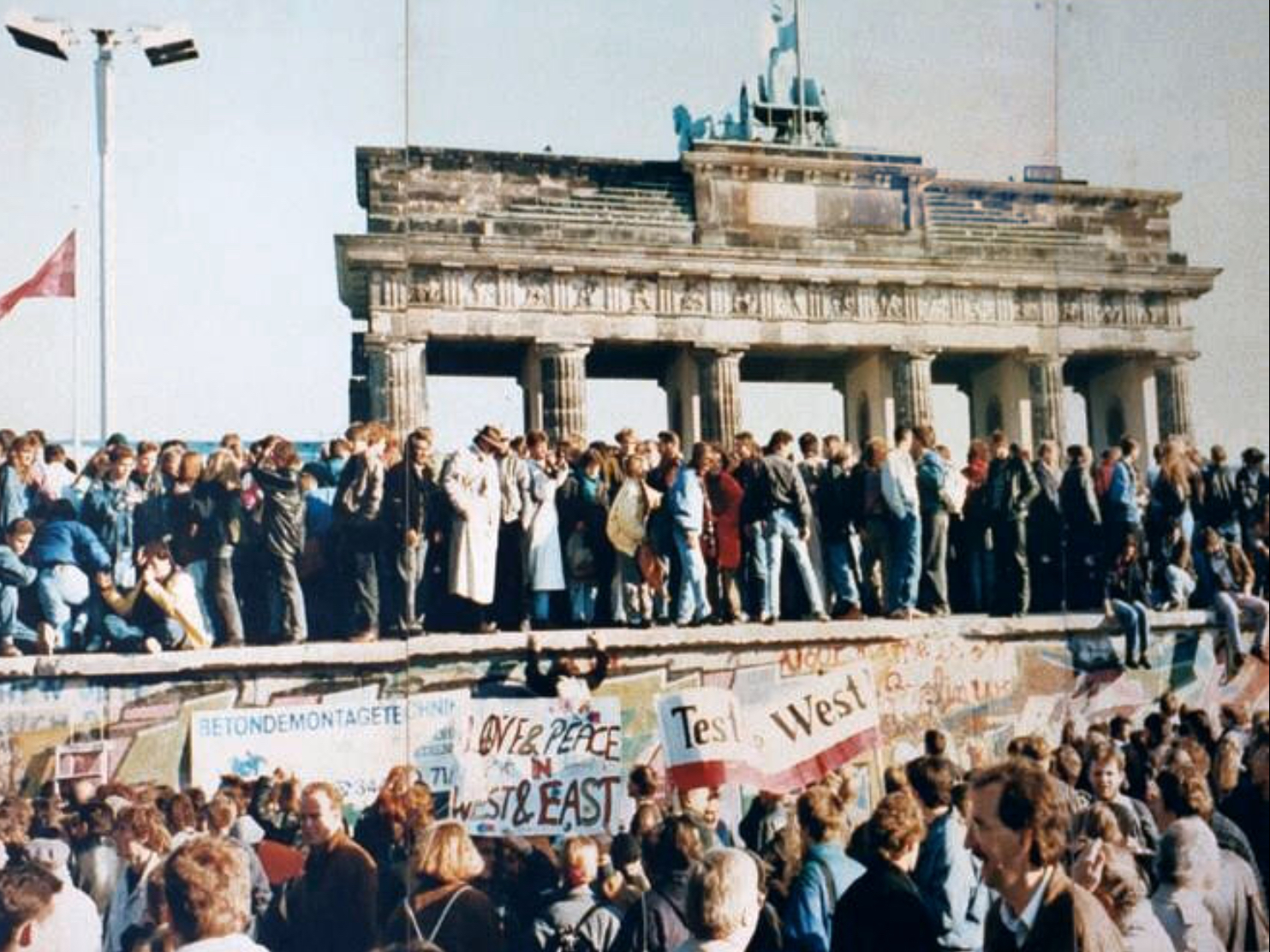
When did the Berlin Wall fall?
November 9th 1989→ it was dismantled by ‘people power’
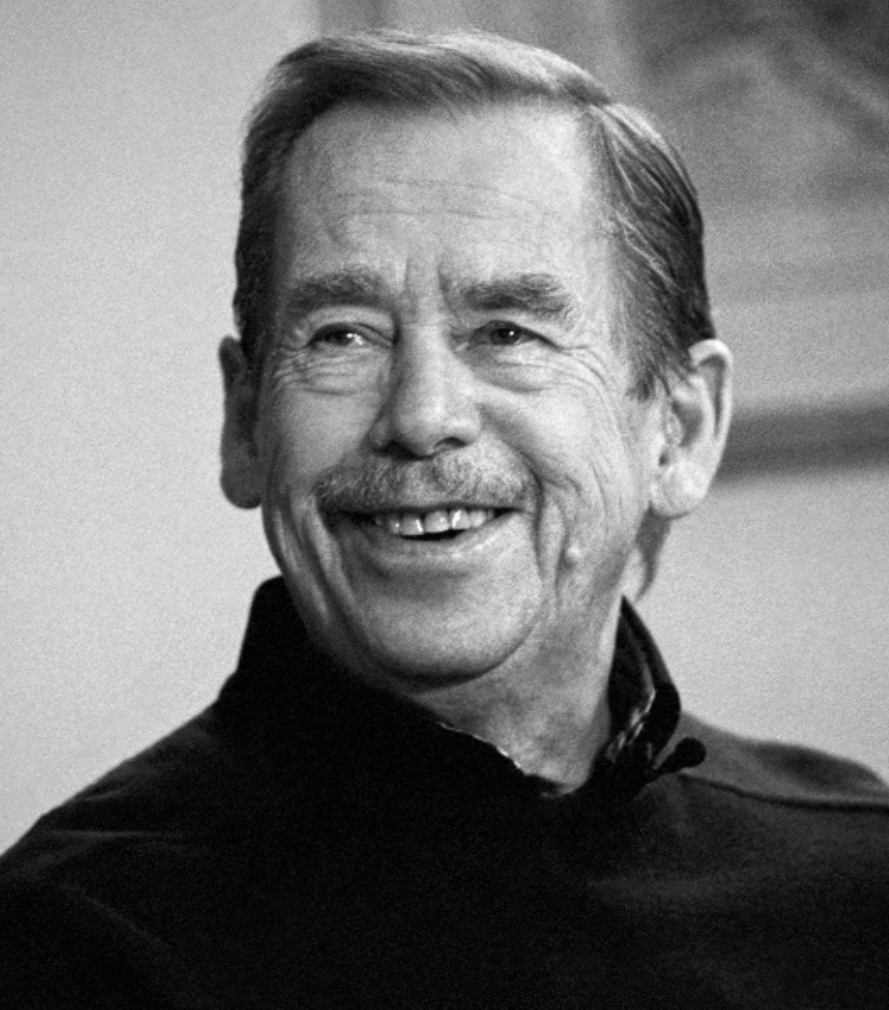
How did the Communist regime collapse in Czechoslovakia?
An organisation called Civic Forum emerged to co-ordinate the campaign to get rid of the communist government. Under severe public pressure the communists caved in and reforms were introduced and in December 1989 Vaclav Havel, a leading playwright and opponent of communism, was elected President.
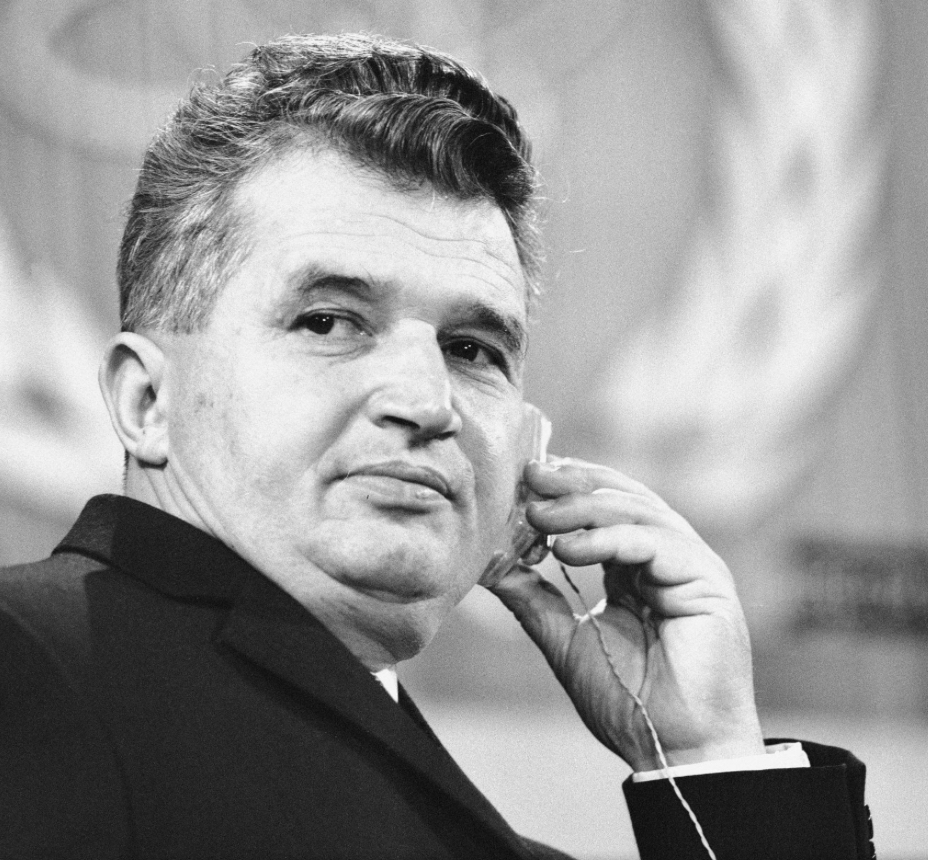
How did the communist regime collapse in Romania?
Demonstrations against the communist government started at the end of 1989 due to a discontented population who were tired of shortages. Ceausescu, Romania’s leader, used the army to open fire on the demonstrators. By December even the army wouldn’t support Ceausescu and he was forced to flee Bucharest by helicopter. He was arrested and executed on Christmas Day 1989 ending communism in Romania.
How did the Communist regime collapse in Poland?
The Communist government yielded to pressure from the independent workers’ organisation, Solidarity, in 1989 and decided to allow it and any other political groups to stand in elections. In the general elections that followed, Solidarity was able to defeat the Communist Party.
What did Pope John Paul II say on his visit to Poland?
June 1979→ ‘Do not be afraid’→ His words encouraged those who sought change.
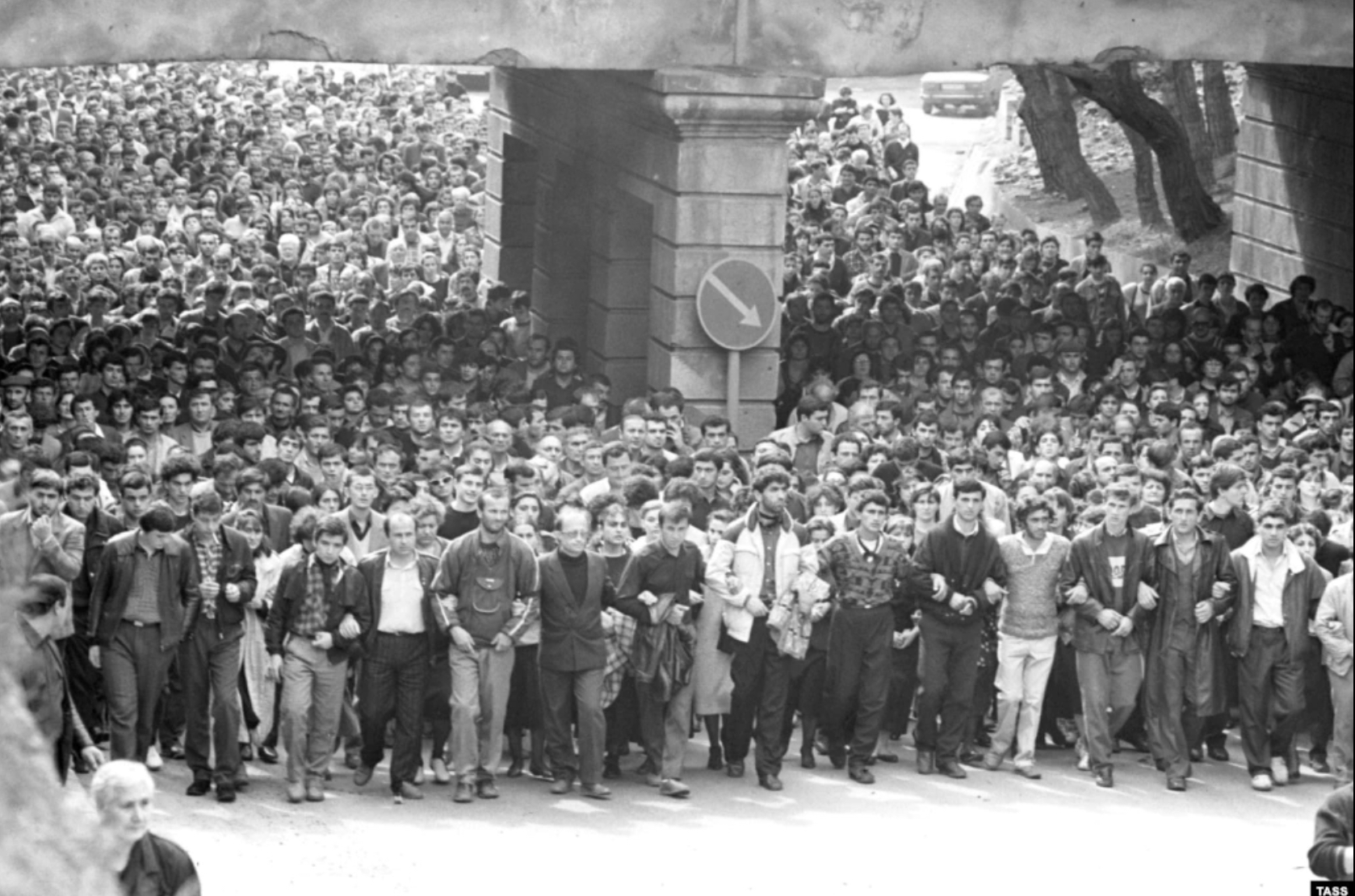
What was the Tbilisi massacre in Georgia? When was it?
9th April 1989→ Georgian nationalists protested against the rights of the Abkhazian minority. Soviet troops tried to restore order by force and killed 19 Georgian protestors and wounded thousands more.
By the end of 1989 ______
Every pro-Soviet communist government in Eastern Europe had disintegrated.